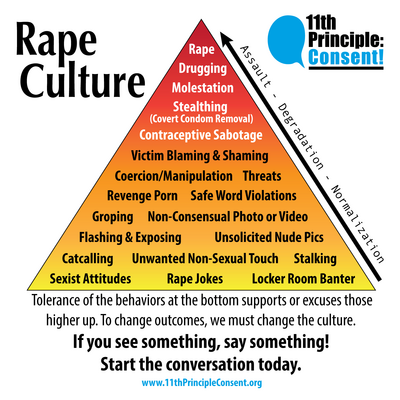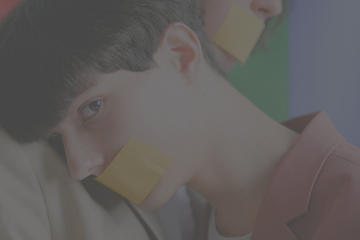With all the controversy lately, it feels like the right time for me to voice my opinion on controversial topics. For today I want to talk about a very important topic to me; rape. Dutch Justice and Security minister Grapperhaus wants to introduce a new law which criminalizes sex against someone’s will. With this law, the act will only be called rape if violence or coercion can be proven. I do not agree.
Rape culture
As a survivor, I can tell you that it is very hard for a rape victim in the current culture. The term “rape culture” was established in the 1970s, but the act has been common since the beginning of history. In the Middle Ages it was common for soldiers to rape the woman of villages they had conquered. Unfortunatly, all throughout history similar cases can be seen.

More victims then you know
Most people throughout the world assume that rape, incest and maltreatment rarely ever happen, but that is not true.
In 2018, around seven thousand victims of sex crimes reported to Victim Support Netherlands. Nearly nine out of ten of them were women. Three out of ten of these women were victims of sexual assault and one in five were raped. And these are only the cases where the victim came forward.
Victim blaming and shaming
Victim blaming and shaming is the a big reason for sexual assault victims to not come forward. Coming forward is hard for victims. Not only do they have to admit that their physical integrity has been compromised, but most are not getting the support they need. In some cases, the victim is either disowned by her family or she has to marry her rapist. This is even the case if the victim is under-aged. And therefore one in three only reports the rape.
But with the social media age, victims are also being blamed by non-related persons. It gets harder for victims since everybody can voice their opinions anonymously online. The 2016 documentary Audrie & Daisy takes a look at the effects that online victim blaming has on the lives of teenagers. The documentary shows teenagers assaulted by friends or classmates. It is clear that the justice system tends to minimize or dismiss their cases. The girls do not get justice and are being bullied for being victims. In this case the bulling happens both online and in the school. It is usually the “you shouldn’t have” sentence you hear as victim. Examples are “you shouldn’t have worn that outfit” or “you shouldn’t have sent that picture”.
Too often victims are told that they themselves have a share in what happened to them. No more!
Grapperhaus law
The impact of rape, as well as the aftermath is emotionally draining for victims. And even if a victim decides to prosecute, the rapist hardly ever get justice. With that in mind, I think we need to really stand up against the rape culture. Sex against someone’s will is rape and should also be prosecuted as rape.
It is shocking to read that one in five man in the Netherlands think there may be mitigating circumstance for rape. And I really agree with Amnesty International that sex without consent should be called rape.


